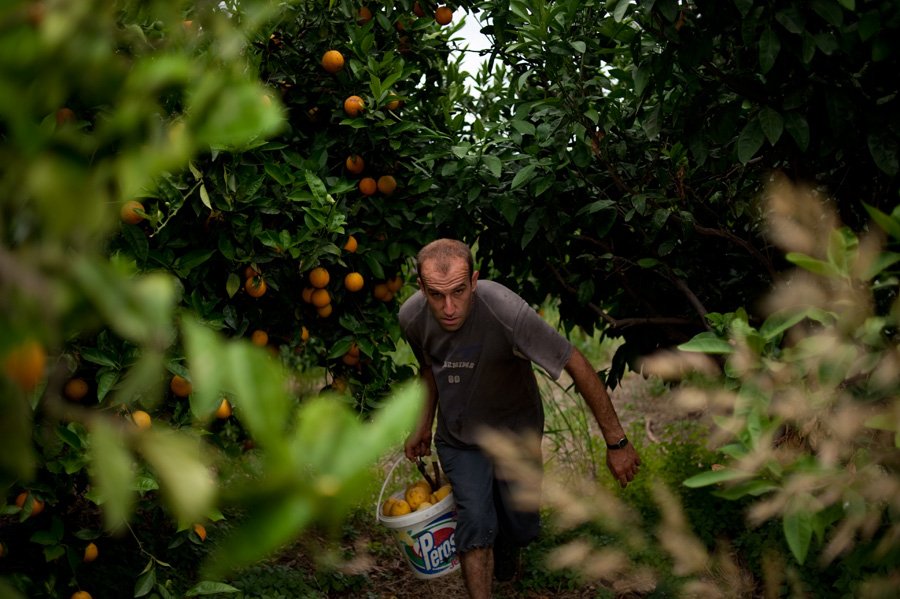 Viken carries a bucket of lemons through his orchard of orange, tangerine, apricot, peach and lemon trees.
Viken carries a bucket of lemons through his orchard of orange, tangerine, apricot, peach and lemon trees.
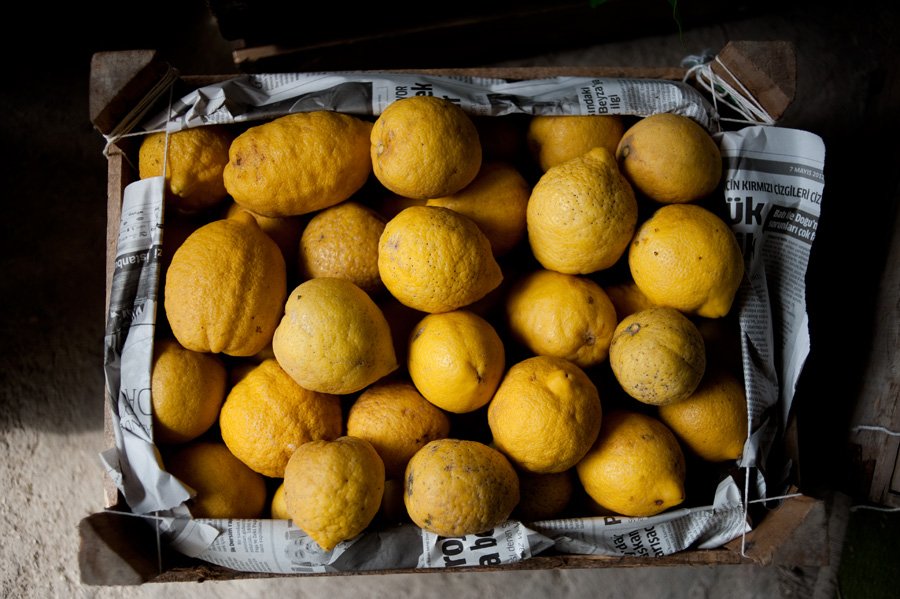 A crate of lemons from Viken’s orchard that he packed himself.
A crate of lemons from Viken’s orchard that he packed himself.
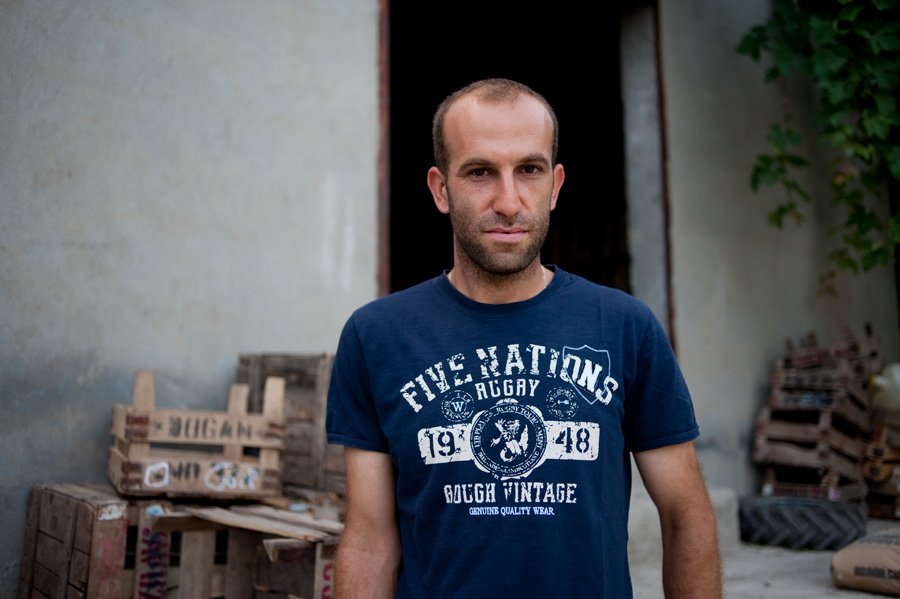 Viken Kartun, 30.
Viken Kartun, 30.
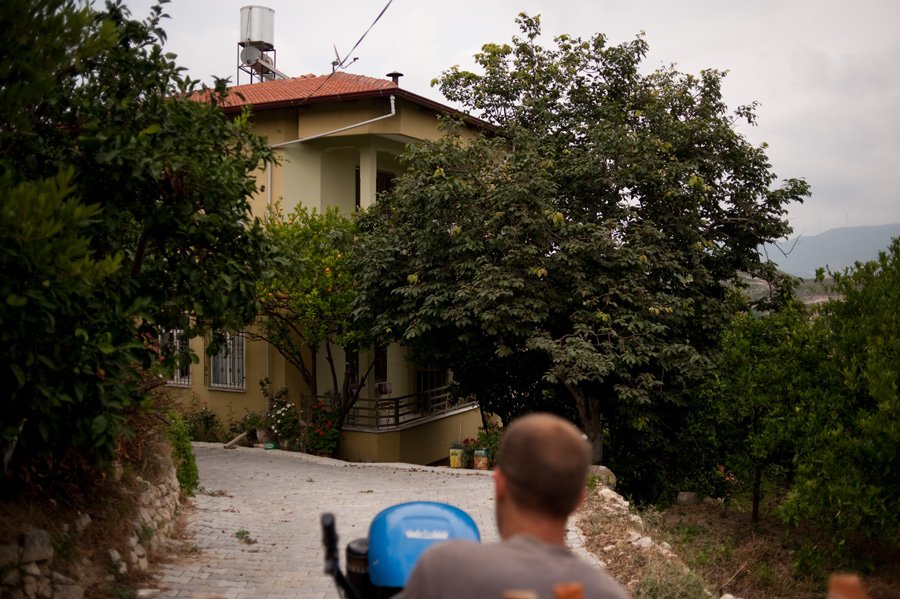 Viken drives his tırbiratör to the home he shares with his parents and grandparents.
Viken drives his tırbiratör to the home he shares with his parents and grandparents.
Viken Kartun, 30, is single and looking. He’s a Cancer and enjoys animals, and he’s a good catch: self-employed, handsome, hoping to settle down. His ideal mate would live in Vakıflı with him and his family and, preferably, be an Armenian Christian. Viken is, really, a simple guy with simple needs.
As he talks about his lack of a love life, Viken stretches his legs in front of him and reaches down to scratch his cat’s head. The cat purrs in response then scampers away to hunt for cicadas.
“It’s hard [to find love] here,” he says. “Everyone knows everyone.”
He found love once before, he explains, but it didn’t last. He and his girlfriend were together for six years, happy in their relationship until Viken moved back home after graduating from college. He felt that he could never move away again, and she felt she could never move back. So they parted ways.
Now Viken is starting to feel the pressure to couple up again. His sister, Lerna, recently got engaged to her college sweetheart, a Kurdish Muslim. Viken didn’t initially approve of his sister marrying someone of a different cultural and religious background, but he’s assured himself that she is happy.
While he waits for his true love to come along, or for villagers to set him up with an eligible bachelorette, Viken takes care of his family. He lives with his parents, both of whom are retired, and his grandparents. As is family tradition, Viken works in the orchards, picking and selling tangerines and Valencia and Washington navel oranges. He has a degree in foreign trade but decided it was better to settle in Vakıflı rather than move to big city Istanbul to work for a major company.
“Instead of working for someone, I’d rather work for myself.”
He does well enough, he says. He is able to pay his bills and support his family, though his revenue is dependent on his crop and the price of fruit. At the Antakya wholesale fresh fruit and vegetable market where Viken sells his produce, the average price of fruit last year was two Turkish liras per kilo. This summer, the price is 60 “kuruş,” or cents, per kilo.
“Work here is not difficult,” he says. “What’s difficult to accept is when your crops don’t make anything.”
His friends and neighbors, Murat and Sirop, can commiserate. As a group, they have decided to ensure the continuation of their village and their orchards, even if it means sacrificing other opportunities.
“We’re determined to make the village survive,” he says. “Vakıflı is on borrowed time.”
The best way, they have concluded, is to perpetuate life in the village. If they can all marry and have children, Viken believes that Vakıflı can carry on. His faith in future generations, however, hinges on one factor: his finding a bride.
“Unfortunately [I am single],” he says.
And, despite his misgivings, he would accept a wife who was neither Armenian nor Christian.
“Happiness is more important.”
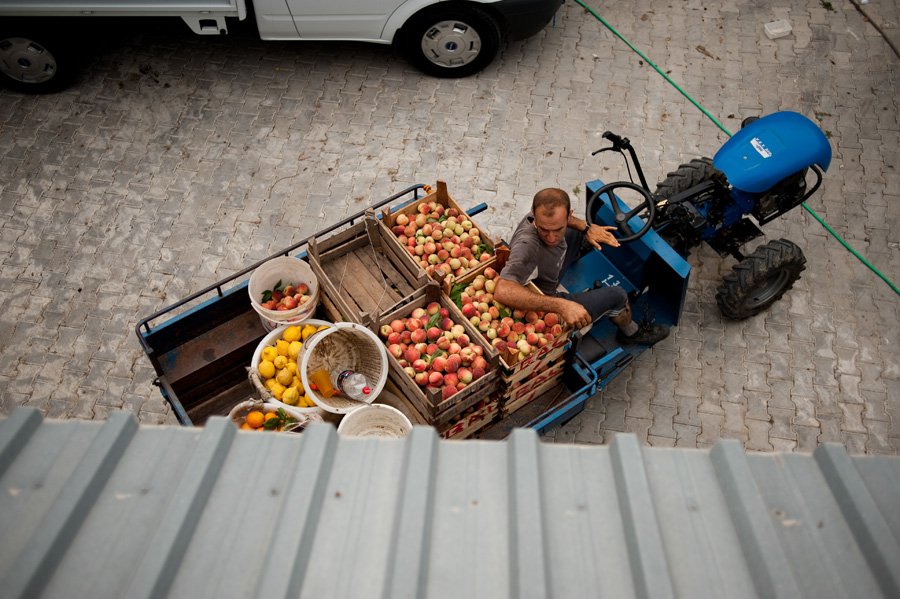 Viken backs up before unloading fruit. The fruit will be packed in his backyard and taken to Antakya to be sold.
Viken backs up before unloading fruit. The fruit will be packed in his backyard and taken to Antakya to be sold.
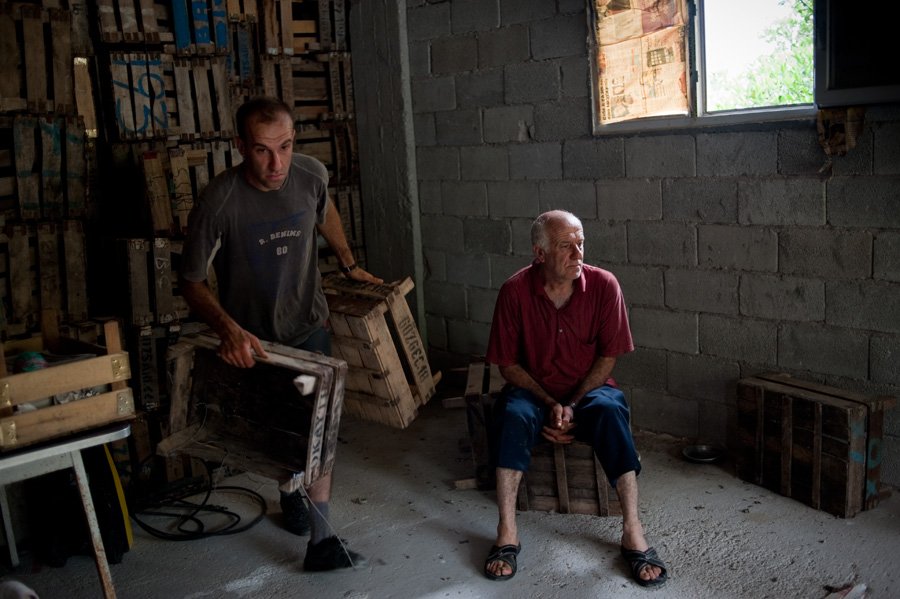 Viken carries crates while his father, Bedros, sits on one and watches the fruit being packed.
Viken carries crates while his father, Bedros, sits on one and watches the fruit being packed.
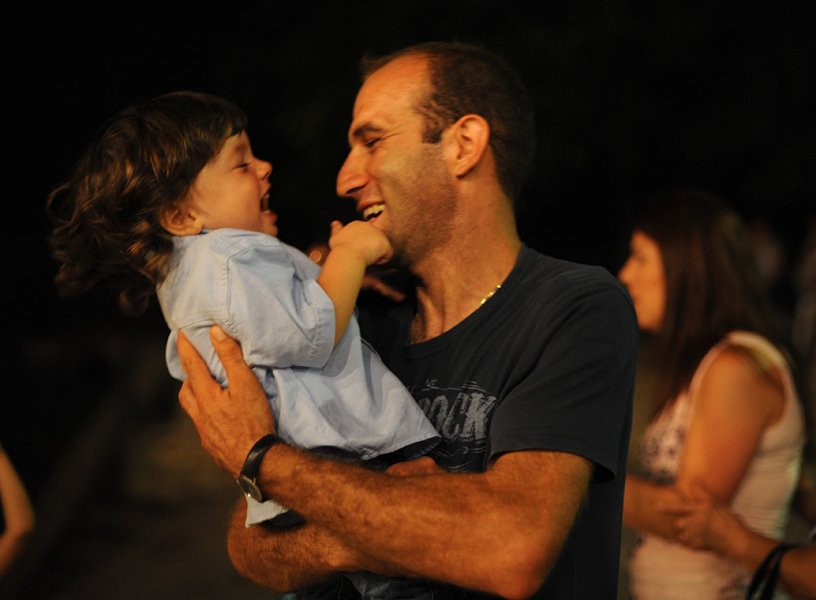 Viken plays with his cousin Tommas at the dinner party during the grape festival.
Viken plays with his cousin Tommas at the dinner party during the grape festival.